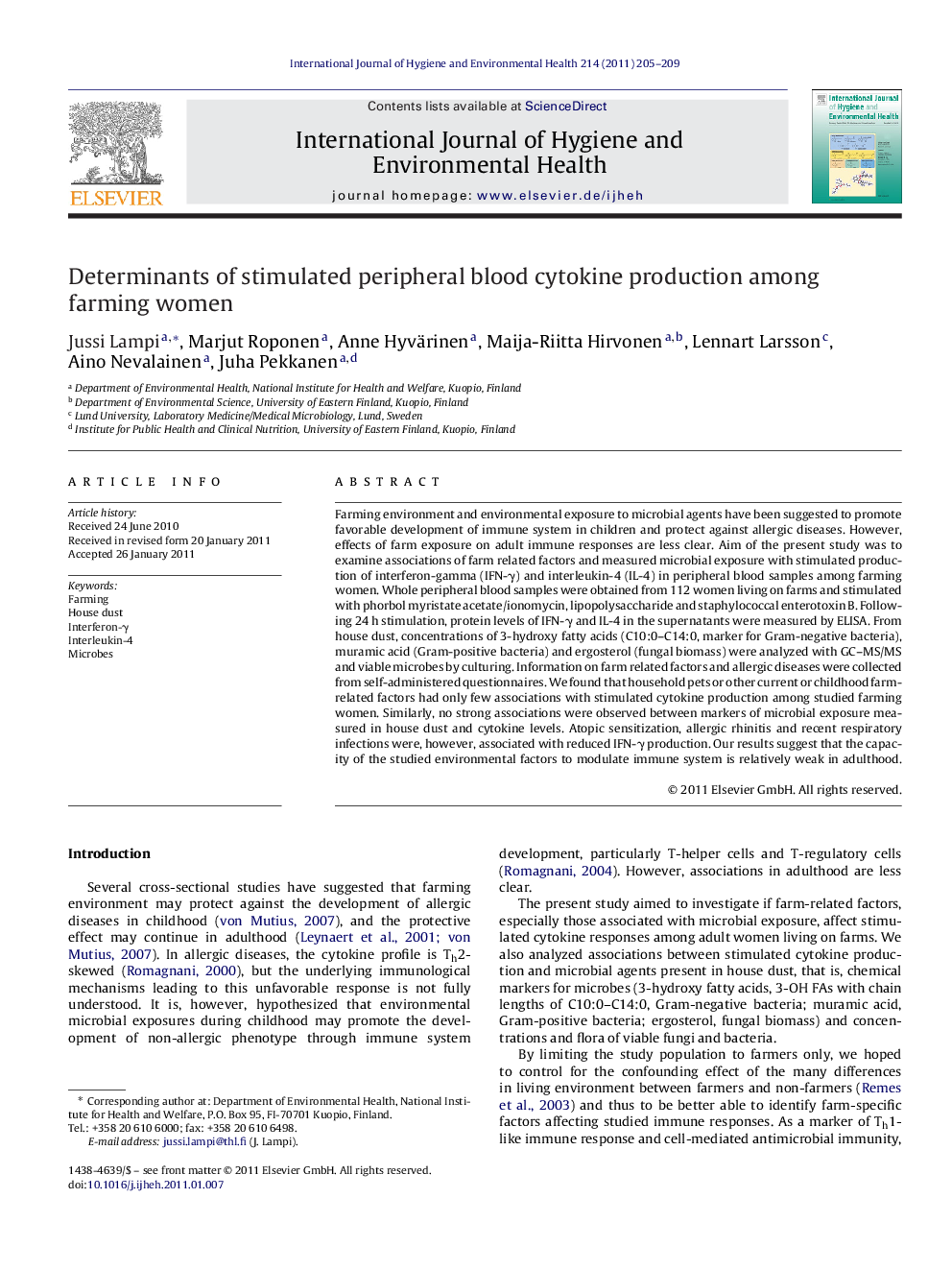| Article ID | Journal | Published Year | Pages | File Type |
|---|---|---|---|---|
| 2588798 | International Journal of Hygiene and Environmental Health | 2011 | 5 Pages |
Abstract
Farming environment and environmental exposure to microbial agents have been suggested to promote favorable development of immune system in children and protect against allergic diseases. However, effects of farm exposure on adult immune responses are less clear. Aim of the present study was to examine associations of farm related factors and measured microbial exposure with stimulated production of interferon-gamma (IFN-γ) and interleukin-4 (IL-4) in peripheral blood samples among farming women. Whole peripheral blood samples were obtained from 112 women living on farms and stimulated with phorbol myristate acetate/ionomycin, lipopolysaccharide and staphylococcal enterotoxin B. Following 24 h stimulation, protein levels of IFN-γ and IL-4 in the supernatants were measured by ELISA. From house dust, concentrations of 3-hydroxy fatty acids (C10:0-C14:0, marker for Gram-negative bacteria), muramic acid (Gram-positive bacteria) and ergosterol (fungal biomass) were analyzed with GC-MS/MS and viable microbes by culturing. Information on farm related factors and allergic diseases were collected from self-administered questionnaires. We found that household pets or other current or childhood farm-related factors had only few associations with stimulated cytokine production among studied farming women. Similarly, no strong associations were observed between markers of microbial exposure measured in house dust and cytokine levels. Atopic sensitization, allergic rhinitis and recent respiratory infections were, however, associated with reduced IFN-γ production. Our results suggest that the capacity of the studied environmental factors to modulate immune system is relatively weak in adulthood.
Related Topics
Life Sciences
Environmental Science
Health, Toxicology and Mutagenesis
Authors
Jussi Lampi, Marjut Roponen, Anne Hyvärinen, Maija-Riitta Hirvonen, Lennart Larsson, Aino Nevalainen, Juha Pekkanen,
